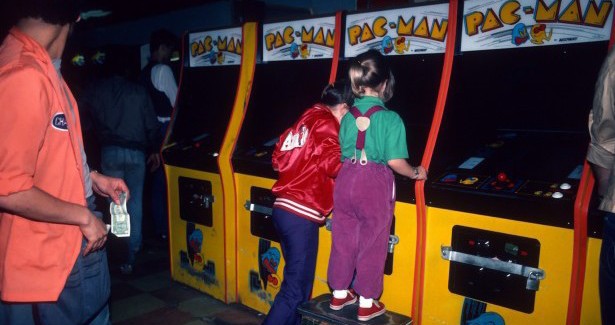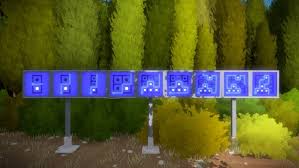I get a lot of people asking me how the writing that I do here on the site connects back to the academic writing that is expected in the job that I do that keeps the lights on around here. Well, today I presented a piece (along with Alex Layne and Enrique Reynoso) on rhetoric and deicide in Bungie’s Destiny. The video that you see below is a scaled down bit of that talk that I have made into a brief Let’s Play. Below the embedded video you’ll find the audio transcribed.
Transcription:
Ricky, Alex, and I began to play Destiny together not long after the launch of the game and it didn’t take us very long at all to get to the game’s final story mission where you are asked the ominous question before committing (for most) the ultimate sin, deicide. After hours of battling aliens on planets all across the universe you walk into what appears for lack of a better description to be a temple that is filled with alien worships who are kneeling, arms outstretched in prayer to a triune god. You then learn that here you must not only kill the alien worshippers as you have hundreds if not thousands of times before this, but their god as well. As the voice of Peter Dinklage asks the ultimate question, “So…you think you can kill a god?” you recognize that this is not specifically a question of physical ability, but of moral and ethical ability as well. Do you have the mental fortitude to kill the higher power of these alien beings in order to (as you believe…or are being lead to believe) win the war that you have been fighting since the very first time you pressed the START button. Destiny as an always online game does not offer you more than a moment to contemplate what it means that you are being asked to (no, required to if you are going to survive) kill the enemy while they are praying to their god and then kill the three stages of the god itself.
This act of play in Destiny is rhetorically loaded. It has much to say about how its creators see the world and what it tells others about that world. Miguel Sicart writes, “What is true is that play is a dominant way of expression in First World Societies. We play games…And play is not just the ludic, harmless, encapsulated, and positive activity that philosophers have described. Like any other form of being, play can be dangerous; it can be hurting, damaging, antisocial, corrupting. Play is a manifestation of humanity, used for expressing and being in the world.” (2). This is made manifest in this moment when the aliens exit their meditative state (and return to one of red eyed fury) and turn their gaze to you, the lone interloper (for this moment at least) who has dared to come into their sanctuary and to bring with you the intentions of both genocide and deicide. But as you say in the game itself, do you really have a choice? Short of turning the game off at this point (which never feels like an option after putting so much real and virtual time and money into every mission that has led you to this point it is almost as if you the soldier and you the player have no choice). There is no agency. It is move forward or die.
I will never forget the first time Ricky, Alex, and I played through this mission. The cutscene began and I saw the Fallen (as the aliens are called) kneeling and communing with their god. It felt instantly like the ultimate intrusion. Our party chat fell silent and I asked them “Really? We kill them while they are praying?” They responded with “Oh my god” and other utterances of surprise and quick snippets of analysis (that is the ultimate fun of playing games with academic types…the on the fly analysis) before we did what we were ultimately going to have to do in order to successfully complete the mission and advance the narrative. We killed all of the worshippers and then went on to kill their god, not once, not twice, but three times as “The Heart” seems to enter the three statues in the garden that then come to life only to be killed. With each successive death of the living statues Dinklage as our robotic sidekick tells us that The Heart is indeed dying. Looking back over this it really does make us sound like a bunch of assholes. But there was no option not to, unless we took the aforementioned route out and simply quit the game. There was no way to make peace with them. No way to agree to allow their god and their beliefs to co-exist with ours. It was simply kill or be killed and none of us on either side wanted to die.
As we watch this please excuse what seems to be my own desire to die because I wanted to get close enough so that the video would show many of the nuances and that often meant sacrificing the best position on the battlefield. My co-panelists might argue that this is simply how I play the game, but they would be WRONG.
Also interesting in this game is that as “guardians” who are resurrected at the beginning of the game itself to fight in the war against the Fallen (nothing Messianic there) you can be resurrected again and again by your teammates, but the Fallen can not…not even their god can resurrect them or those that are inhabited by pieces of itself. This mission to kill a god (and the entire game really) begs the speaker to not only consider what it means that killing an alien, non-Judeo Christian god (which is necessary for success and survival) is the only means of destroying an army and causing chaos among a race. It also causes us to consider what it means that the players in this game are expected to do it without sufficient time or agency to consider the impact of this act on an entire race of beings and their world. The ultimate danger in this act is that both the player and the enemy are without choice. There is no peace keeping option. For the player, deicide is the only way to complete the mission and for the narrative to continue. For the Fallen, the death of the guardian is the only way to save themselves and their god.
Earlier I made the assertion that studying games like Destiny and the current trend in technological innovation that seeks to erase gender, race, and religion as being one of the reasons that work such as what we are presenting here today is of such great import. Let’s explore that a bit. As I am teaching a course on ethics and games this summer it’s easy to see why this is so important, but what of people who don’t and have no desire to teach games? Many of our students play or have some kind of tangential familiarity with games like Destiny if not with Destiny itself. This gives us a jumping off point to discuss how the attempted (or successful) “white-washing” of technology as a whole leaves a space (a blank space if you will) on which to write new prejudices, stereotypes, and oppressive expectations that are based on the belief systems of those in power rather than those who are most affected (or erased) by this act of white washing.
One of the most obvious examples of this might be the rearticulation of the question of access that we have heard addressed over and over again over the last 20+ years. While it is no longer simply how do we get access to basic technology for everyone (well at least not only this any more) it is now that giving access to people on a more global level erases perceived inequity for far too many people. It white washes the issue so that the question becomes if the have equal access (imagine the scare quotes here) to technology why is it that marginalized groups are not yet on equal footing with those of the majority. Here the boot straps mentality comes to play. They must not be working hard enough, must not be smart enough, etc…all of the assertions that have been used for centuries to build and reinforce the stereotypes and prejudices that have plagued our country and have brought us to the point where we find ourselves today.
Super charged to come together as teachers, gamers, game scholars, rhetoricians, compositionist, and social justice warriors of a type to determine what it is that games have to offer us when we begin to interrogate how they operate as a technology and how they can be used to illuminate technology writ large in such a way to try to move us forward past the cycle of xenophobic and elitist issues that we find ourselves faced with in on a day to day basis.





3 thoughts on “Critical Let’s Play: “Can You Kill a God?”: Rhetoric and Deicide in Destiny”
Long time reader, first time commenter :P. It’s is just that the whole thing about this almost false choice between continuing or not. Killing the God, or quitting the game, really reminded me of the ending of Stephen King’s ‘Dark Tower’ series. I can’t really say more than that without spoiler so I’m not sure what the point of this message is now :D.
I suppose it is that that false choice can be a way of forcing a player or reader, but rarely a watcher, into identifying with choices that would otherwise be outside of the player’s experience.
It sort of highlights everything the character has been through to get to that point and why they might ignore moral concerns in order to continue. I’m not sure how effective it is but I think it may be a legitimately identifiable function.
Thank you for writing/recording.
I think that quitting is an interesting option. It causes you to think about what you are morally ok with doing. It’s especially interesting when you think of it terms of being a “cheat” as Mia Consalvo suggests. It’s kind of the ultimate cheat. “I don’t like where this is going so I’m gonna end this right here regardless of what the devs intended and what the other folks on my fireteam need”.
The thing about quitting, for me, is that I rarely quit something I’ve started unless I’m bored. I don’t quit out of anger; I then hate-play or hate-read or whatever. I don’t know what it is. With games, maybe the monetary investment.